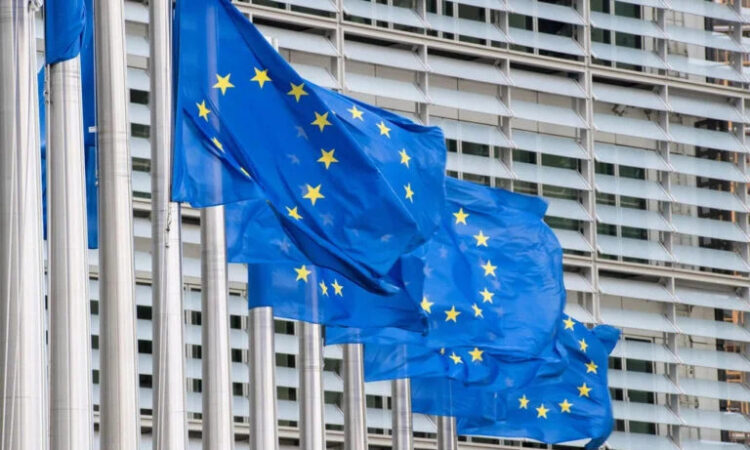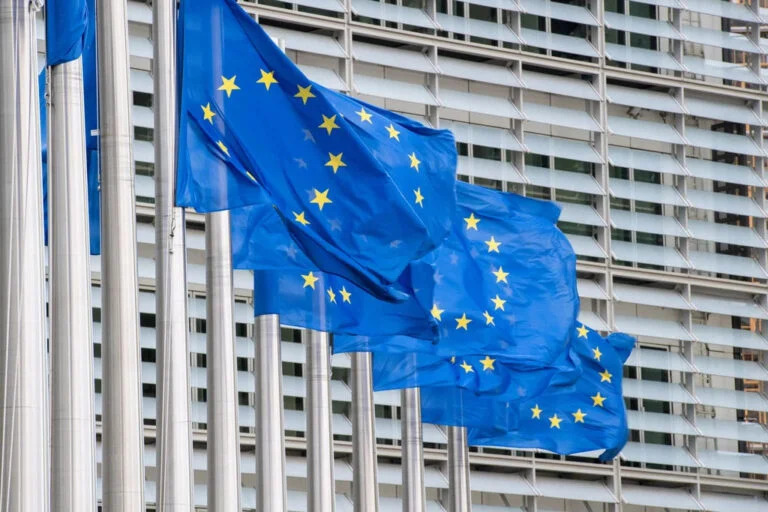
European Commission has awarded nearly €720 million to seven renewable hydrogen projects in Europe, selected through the first competitive bidding process under the European Hydrogen Bank.

The winning bidders will produce renewable hydrogen in Europe and will receive a subsidy to bridge the price difference between their production costs and the market price for hydrogen, which is currently driven by non-renewable producers, the Commission said, adding that the renewable hydrogen they produce will be used in sectors such as steel, chemicals, maritime transport and fertilizers.
The Commission revealed that together, the winning bidders plan to produce 1.58 million tonnes of renewable hydrogen over ten years, avoiding more than 10 million tonnes of CO2 emissions.
The selected projects will now start preparing their individual grant agreements with the European Climate, Infrastructure and Environment Executive Agency (CINEA), which are expected to be signed by November 2024 at the latest.
According to the Commission, the projects will have to start producing renewable hydrogen within a maximum of five years after signing the grant agreement and will receive the awarded fixed premium subsidy for up to ten years for certified and verified renewable hydrogen production.
The funds for this auction come from the revenues of the EU Emissions Trading System, and the Commission plans to launch a second European Hydrogen Bank auction by the end of 2024.
Maroš Šefčovič, Executive Vice-President for European Green Deal, Interinstitutional Relations and Foresight, stated: “The European Hydrogen Bank will provide valuable support to the decarbonisation of European industry. The high number of bids and the investments awarded today are a clear signal of confidence in the nascent renewable hydrogen market. There is a strong project pipeline in Europe and a competitive industry. These are encouraging signs for the future of this important net-zero technology.”
Wopke Hoekstra, Commissioner for Climate Action, noted: “The results of our first EU-wide auction for renewable hydrogen production are very encouraging. These innovative auctions, funded by the revenues from emissions trading, are a game-changer when it comes to producing renewable hydrogen in Europe. The high level of interest shows the strong potential for this market, and the need for resources beyond the EU budget.”
Kadri Simson, Commissioner for Energy, commented: “The EU is becoming a hub for clean technologies. The results of the first auction of the European Hydrogen Bank prove the high interest from European industry to produce and use hydrogen on our continent. The selected projects will help us to deliver the EU’s 2030 energy and climate targets, while creating new opportunities for green jobs and skills. The second hydrogen bank auction later this year is another exciting opportunity for European industry and I hope to see similar interest then.”
To remind, in addition to this grant, through the new Auctions-as-a-service mechanism, €350 million in national funding has been made available by Germany for the highest-ranked projects in the country which did not qualify for EU-level support, but which do meet the eligibility criteria.
The Auctions-as-a-service scheme is open to all European Union member states, enabling them to benefit from the EU-level auction platform and award national funding to additional projects, the Commission reminded, inviting the states to take advantage of this service for future auctions.
The European Hydrogen Bank, announced by President Ursula von der Leyen in her State of the European Union address in 2022, is an initiative to facilitate the EU’s domestic production and imports of renewable hydrogen. It aims to unlock private investment in the EU and in third countries by addressing investment challenges, closing the funding gap and connecting future renewable hydrogen supply to consumers.
The first auction of the European Hydrogen Bank received 132 bids from 17 European countries requesting over 15 times the available €800 million budget. 119 proposals were found to be eligible and admissible, and were then ranked according to their bid price, and evaluated by the European Climate, Infrastructure and Environment Executive Agency (CINEA). The bids submitted ranged from €0.37 to €4.5 per kilogram of renewable hydrogen produced.






